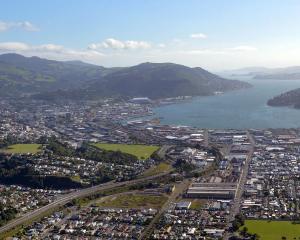A smoking ban in open spaces, such as pavements, civic squares and beaches, is to be investigated by Auckland Council.
The entire central business district could also be covered by a new bylaw.
The council's regional strategy and policy committee today voted to investigate the bylaw and strengthen efforts to make smoking socially unacceptable.
The measure comes in the same week it was revealed that Auckland Council has investments in British American Tobacco. The council is reviewing the investment.
Health organisations including the Cancer Society and Hapai te Hauora addressed the committee urging it to "do the right thing" and make a "landmark policy step".
Officers advised the committee that choosing the bylaw option could be legally challenged and came with associated costs.
However Mayor Len Brown and committee chairman George Wood chose to proceed with the investigation.
"I am proud the committee has showed such strong leadership today and that's because we know Aucklanders want us to tackle this issue head on," Wood said.
Brown applauded the decision, saying the council already has the country's most comprehensive smokefree policy and the time has come to take a more proactive and regulatory approach.
"There has been a reduction of smoking in this city, which I think is partly due our policy, and public opinion is on our side to give that policy more grunt and show some strong leadership in this regard.
"But we can do more, and better, and an investigation of a bylaw could see us determine the outdoor spaces where smoking would be banned which really excites me and which fits with our vision to be the world's most liveable city."
Cities around the world are opting for a regulatory approach. In Australia several states and territories already have smokefree laws for outdoor dining areas.
While a new bylaw would take some time to develop, it could be the first major outdoor smokefree bylaw in New Zealand and - with a necessary law change - possibly empower the council to issue infringement notices which it currently cannot.
The review showed smoking rates among Maori and Pacific communities in Auckland were substantially higher than for the general population. Young Maori women (25-34) in particular have smoking rates far higher at about 35 per cent.
"It is ghastly statistics like this that have encouraged me to take a strong stand with this issue and do more," Brown said.
"Obviously this is just another step towards a smokefree city but it's a significant one. I am sure Aucklanders will be very happy we are taking the initiative to resolve an issue that undoubtedly compromises their health and environment and that of their children."
The bylaw investigation will be in accordance with the Local Government Act 2002 and will involve research, stakeholder engagement, legal review and approval, full public consultation and hearings and public deliberations.
- By Bernard Orsman












